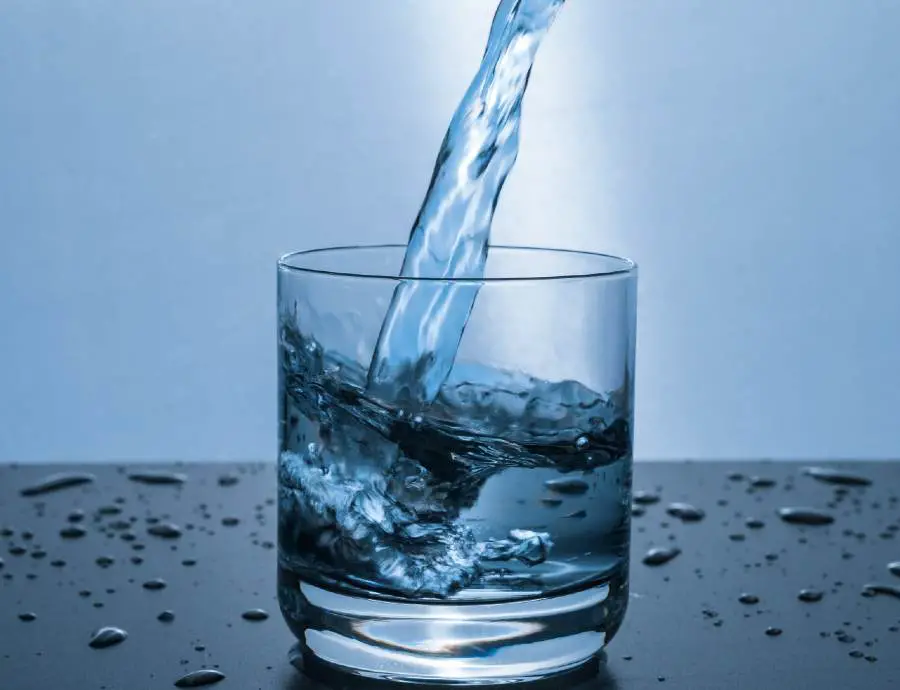
One of the oldest tricks to purify and sanitize water is by boiling and distilling it. Coffee makers heat up cold water to make steaming hot coffee and, therefore, you are likely to wonder;
Can you make distilled water with a coffee maker?
No, as a coffee maker does not boil water. Coffee makers heat water to about 205°F which is lower than water’s boiling point (212°F). To distill your water, you may want to use a countertop water distiller but bear in mind that distilled water is bland as it lacks minerals.
Why Coffee Makers Do Not Boil Water
According to the National Coffee Association, the best water temperature to make coffee is 195-205°F.
If a coffee maker heats water beyond this temperature, the coffee is sure to be bitter due to over-extraction. It is one of the reasons that old-fashioned coffee percolators were replaced by auto-drip coffee makers.
In fact, brewing temperature is a fundamental requirement when testing auto-drip coffee makers for SCA golden cup certification. Part of the requirement is that the water cycling through ground coffee should at no point fall below 202°F or exceed 206°F.
We wrote an article where you can read more about the SCA golden cup certification for auto-drip coffee makers.
At high altitudes, water’s boiling point is bound to fall. For example, at 5000 feet above sea level, water boils at about 202°F which is 10°F lower than the normal boiling point.
A coffee maker in places like Denver, parts of Los Angeles, and Albuquerque that are more than 5000 feet above sea level, will inadvertently boil water and make bad coffee.
To safeguard against this, most coffee makers have temperature settings where you can lower the temperature when making coffee in higher altitudes.
You may want to read our post about how the high-altitude feature in a Keurig coffee maker works.
Espresso machines are a peculiar case as they boil the water for the steam wand while a separate pump only heats water to the optimum brewing temperature.
A stovetop percolator boils water and uses bubble pressure to push the boiling water up through the perk tube to the overhead coffee filter.
See how a Keurig works its water here.
Does a Coffee Maker Distill Water?
A coffee maker does not distill water as it is not capable of boiling or steaming the water. To distill water, you need to boil it and then collect the condensed steam. Therefore, you can not use a coffee maker as a still.
Since a coffee maker heats water to a maximum temperature of 205°F, a coffee maker does not kill all the bacteria that may be present in water or inside the coffee maker.
The EPA recommends using treated, boiled, or bottled water for drinking and cooking. Keep in mind that boiling water is not good for coffee. If you must distill your water, here are the best water distillers that you can use at home.
Three Best Countertop Water Distillers
1. CO-Z 1 Gallon Countertop Water Distiller
What I LIke
- FDA certified
- Automatic overheating protection
- Stainless steel interior
- Glass pot
- Fast distillation: 1 gallon in 4 hours
- Voltage 110-120V
What I Don’t Like
- A bit bulky as it takes up a lot of space. It weighs 14 pounds
This brushed stainless steel water distiller has a four-liter capacity and uses 750W to purify the water. It automatically shuts down upon reaching 300ºF for safety.
This home countertop water distiller distills about a quarter gallon of water per hour. It improves the taste of your water as it does not have any plastic parts that come into contact with the water.
The main water chamber has non-slip feet to secure the distiller on the counter. Be sure to have enough space as this home distiller measures 19 x 13.08 x 11 inches.
2. Waterwise 3200 Water Distiller
What I Like
- 1 gallon every 4 hours
- Stainless steel boiler
- White color
- Auto shut off every 1 gallon cycle
- Non-drip stop and serve capability
- ETL and cETL listed
What I Don’t Like
- Needs a bit of space as it measures 17.5 x 12.5 x 10.9 inches
Waterwise 3200 water distiller uses 800 watts at 120V to purify water and can distill up to 6 gallons per day at a rate of 1 gallon every four hours.
It is easy to use as you simply add water to the boiler and press the reset button to start distilling. It features a food-grade plastic carafe.
3. Megahome Stainless Steel Countertop Water Distiller
What I Like
- Water never touches plastic
- Glass carafe
- Smaller dimensions 9.84 x 9.84 x 14.57 inches
- Lightweight at 7.05 Pounds
- UL approved for home safety
What I Don’t Like
- Takes 5.5 hours to distill 1 gallon of water
This distiller is designed to ensure that water never touches any plastic as plastic can impart a bad odor and flavor. The boiler and all the interior parts that come into contact with the hot water and steam are made from 304 stainless steel. The spout is lined with porcelain.
It distills water at 212 degrees Fahrenheit (water’s boiling point) and automatically shuts down when a full distillation cycle is complete. It is shipped with six optional carbon filters to remove chlorine and odors from water.
Megahome countertop water distiller is rated 580 watts and 110-120V. It is slower than the other two distillers that we have featured as it takes five and a half hours to purify 1 gallon of water.
How to Protect a Coffee Maker from Bacterial Infection
Since you do not want your coffee maker to be crawling with bacteria that you may end up drinking with the coffee, there are a few ways to prevent bacteria from infecting the coffee maker
- Use clean filtered or bottled water. If your tap water is not filtered, install a filter for your home, office, or coffee shop as the bacteria could be coming from untreated water. Alternatively, use bottled water although it’s expensive in the long run. Unfiltered water will also compromise coffee extraction and flavor.
- Clean and dry the coffee maker after brewing or at the close of business. A water-only cycle for a drip coffee brewer is enough to rinse the water lines and remove coffee oils. For espresso coffee machines, you want to backflush the group heads to remove coffee residues and oils. Clean the removable parts such as the drip tray and brew basket and dry them with a clean lint-free cloth.
- Regularly clean drip coffee makers with vinegar and use cleaning tabs for espresso coffee machines. This will sanitize a coffee maker that is infected with bacteria. Also, clean the removable parts with vinegar or cleaning tabs and change the charcoal filter for a drip coffee maker.
- Bacteria and molds in your home or office are likely to spread to the kitchen appliances. Therefore, maintain a clean and well-ventilated home or office.
White vinegar will also decalcify the drip coffee maker and improve the taste of your coffee. Be sure to thoroughly rinse all the parts that were soaked in vinegar as vinegar residues will taint the taste of your coffee.
We wrote a post about molds in Keurig and how to remove them and you can apply these tips in any coffee maker.
Wrap up
Coffee makers do not boil water as the optimum brewing temperature is 195-205°F. Drip coffee makers with temperature settings are capable of brewing at high altitudes where water’s boiling point is lower than at sea level.
Coffee makers are incapable of sanitizing or distilling water and you are better off using a water distiller or using either bottled or filtered water. Regularly cleaning the coffee maker with vinegar will kill any bacteria that may have infected the brewer and remove the limescale.
For espresso coffee makers, regularly use cleaning tablets to remove coffee oils from the group head assembly and thoroughly rinse to avoid tainted flavors in your coffee.
FAQs about Whether a Coffee Maker Can Distill Water
What Can I Use Instead of Distilled Water?
There are numerous substitutes for distilled water depending on the purpose. For making coffee, bottled water and filtered tap water are the best choices. For baby formula, use boiled and cooled water. For a car battery or a chemistry lab, reverse osmosis or deionized water will suffice.
For drinking and cooking, use either treated water, bottled water, or boiled water. Springwater is also an excellent choice for drinking and cooking.
Why Do Coffee Makers Heat Water so Fast?
Some coffee makers have internal storage tanks that maintain the water toasty between brew cycles. These coffee machines heat up water for the next brew pretty fast as they do not heat it from room temperature.
Moreover, coffee maker technology has greatly improved and new coffee makers have fast brew capabilities with efficient water heaters that heat water much faster than older coffee makers.




